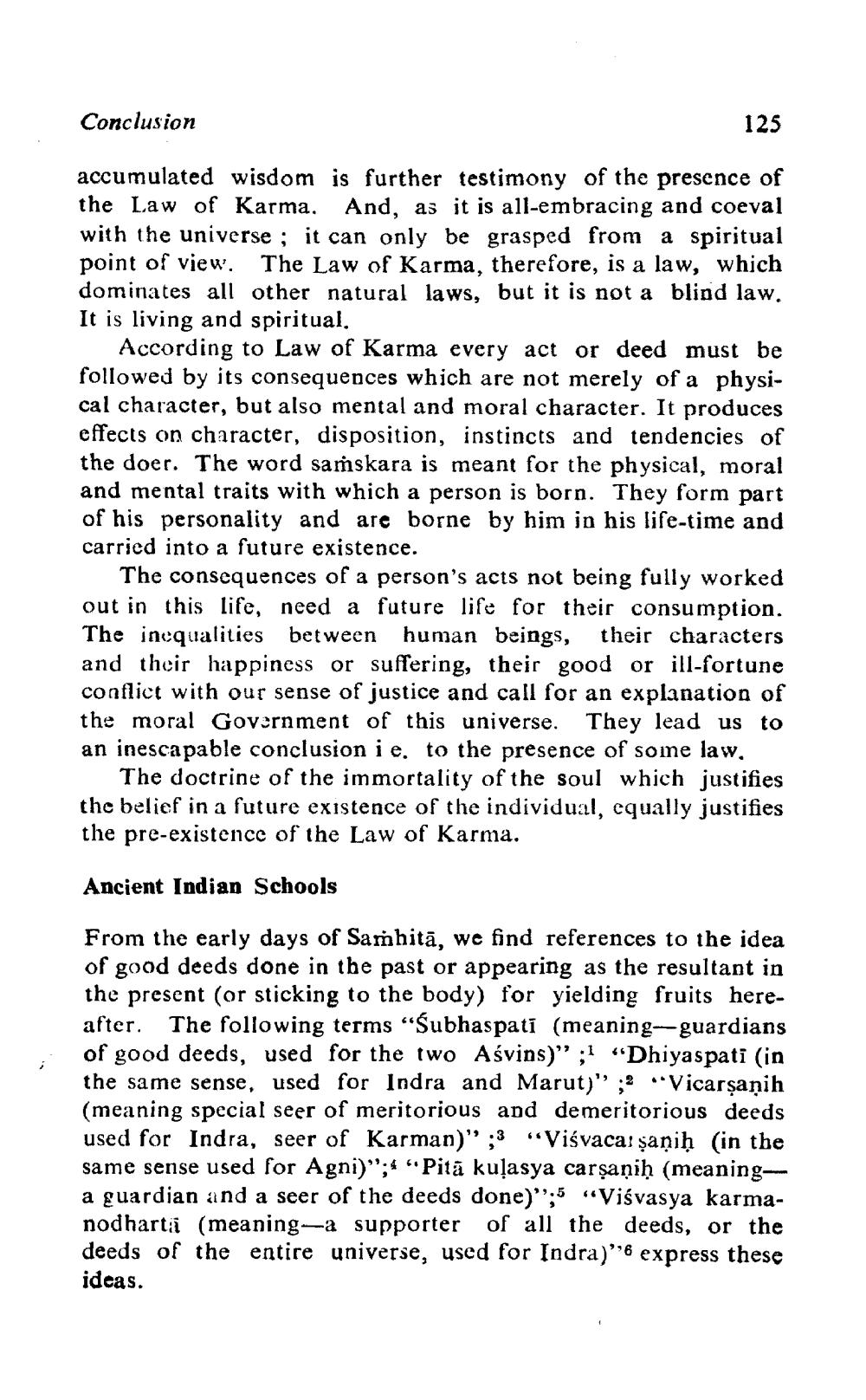________________
Conclusion
125
accumulated wisdom is further testimony of the presence of the Law of Karma. And, as it is all-embracing and coeval with the universe ; it can only be grasped from a spiritual point of view. The Law of Karma, therefore, is a law, which dominates all other natural laws, but it is not a bliod law. It is living and spiritual.
According to Law of Karma every act or deed must be followed by its consequences which are not merely of a physical character, but also mental and moral character. It produces effects on character, disposition, instincts and tendencies of the doer. The word samskara is meant for the physical, moral and mental traits with which a person is born. They form part of his personality and are borne by him in his life-time and carried into a future existence.
The consequences of a person's acts not being fully worked out in this life, need a future life for their consumption. The inequalities between human beings, their characters and their happiness or suffering, their good or ill-fortune conflict with our sense of justice and call for an explanation of the moral Government of this universe. They lead us to an inescapable conclusion i e, to the presence of some law,
The doctrine of the immortality of the soul which justifies the belief in a future existence of the individual, equally justifies the pre-existence of the Law of Karma.
Ancient Indian Schools
From the early days of Samhitā, we find references to the idea of good deeds done in the past or appearing as the resultant in the present (or sticking to the body) for yielding fruits hereafter. The following terms "Subhaspati (meaning-guardians of good deeds, used for the two Asvins)"; "Dhiyaspati (in the same sense, used for Indra and Marut)" ;2 Vicarşanih (meaning special seer of meritorious and demeritorious deeds used for Indra, seer of Karman)" ;3 “Viśvacas saņiḥ (in the same sense used for Agni)";4 "Pitā kuļasya carşaṇiḥ (meaninga guardian and a seer of the deeds done)”;5 “Viśvasya karmanodhartii (meaning—a supporter of all the deeds, or the deeds of the entire universe, used for Indra)''6 express these ideas.




